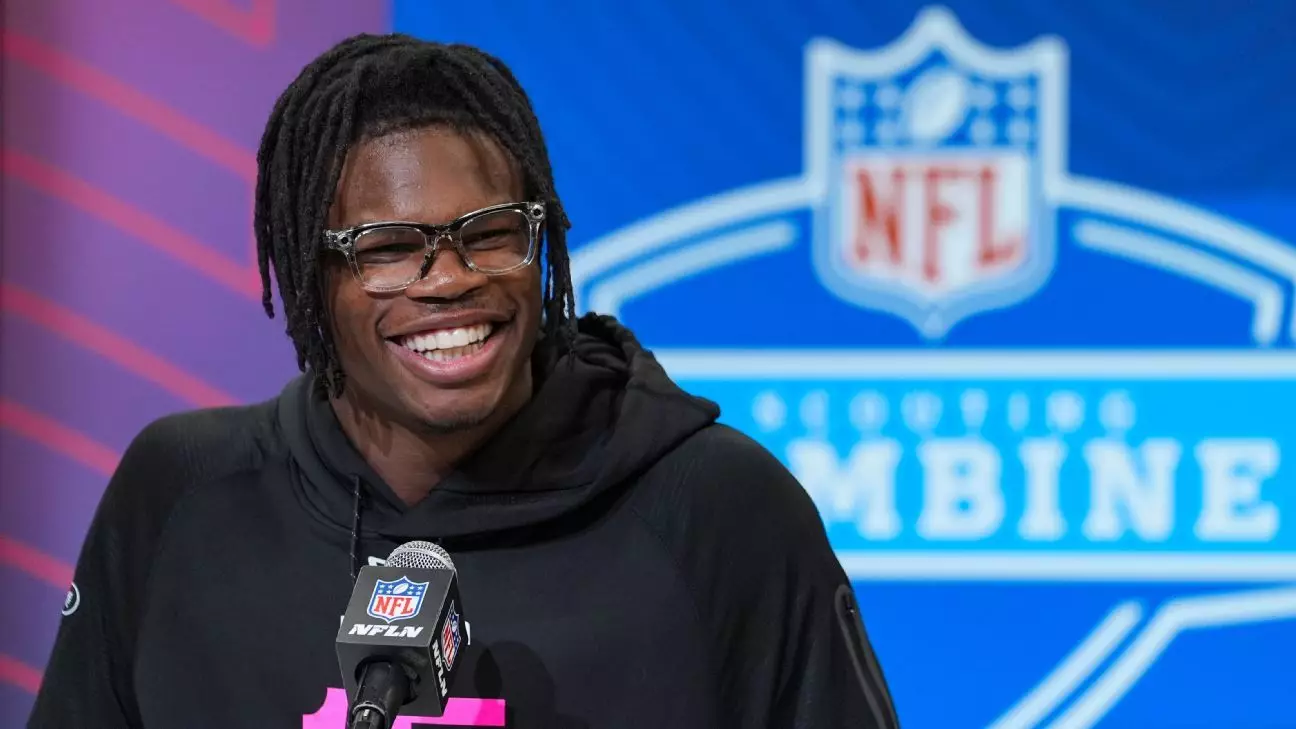In the competitive landscape of the NFL, few athletes possess the unique versatility that Travis Hunter showcases. As the dual-threat sensation who has dominated both offense and defense at the collegiate level, Hunter’s passion for the game shines through his statements. He emphatically conveyed to CBS Sports that sacrificing one side of his game isn’t merely an inconvenience—it’s a hard stop to his football career. “It’s never playing football again,” he asserts, underscoring an unrelenting devotion that should make NFL decision-makers sit up and take notice.
Hunter’s commitment is not incidental; it’s a deep-rooted calling that has defined his football journey. He does not view himself merely as a receiver or a cornerback; instead, he symbolizes the evolution of athlete specialization, where a player can excel and literally redefine positions. His dual-playing capability not only reflects physical prowess but also emphasizes cognitive agility in understanding both sides of the football game. This innate understanding is often what sets apart good players from great ones, and yet, the NFL’s traditionally myopic perspective on position specialization could threaten to stifle this incredible talent.
A Historic Season and Unparalleled Achievements
The stats alone make a compelling case for Hunter’s exceptionalism. The young athlete enjoyed a remarkable season in which he racked up accolades reminiscent of legends. Winning the Heisman Trophy—not to mention accolades for both offensive and defensive excellence—cements his place among the elite. Figures such as 1,152 receiving yards alongside four interceptions render him a historic anomaly, and one can’t ignore that he notched these feats while missing five games due to injury. At just 21 years old, he achieved a staggering total of 2,625 snaps, underscoring not only his physicality but an indomitable spirit to overcome adversity.
In a sport that often tends to pigeonhole its players, Hunter’s accomplishments challenge the normalcy of NFL norms. The historical precedent of a player demonstrating such scope of talent should demand an egalitarian approach, yet skepticism looms in the minds of some executives—would they be willing to embrace a paradigm shift? Such monumental performances should galvanize coaches and managers to rethink rigid positional assignments. Instead, they should see the potential in someone who can be an impact player on both ends of the field.
The Frustration of Prerequisites
Cleveland Browns’ general manager Andrew Berry recently expressed interest in Hunter’s dynamic skill set but leaned toward prioritizing his role as a wide receiver. While this is only natural considering prevailing NFL paradigms, one cannot ignore a sense of frustration emanating from Hunter’s camp. Here lies a generational talent who should not be constrained by the arcane thought processes that have historically shackled two-way players in football. Hunter understands the hierarchy of roles in the NFL, yet the skilful athlete deserves recognition for his multi-faceted abilities.
Hunter’s statement, “It’s not up to me…” underscores a critical point: while athletes train to hone their skills, the decisions about their future often lie in the hands of executives, coaches, and organizations that may lack the vision to capitalize on what he offers. Striking a balance between personal ambition and organizational mindset is crucial for both the athlete’s trajectory and the franchise’s overall success. It poses a question: are teams ready to take the plunge into uncharted waters of talent? Or will they cling to outdated ways, continuing to penalize the vast skill set of versatile players?
The Future of the League and Our Expectations
Ultimately, Hunter’s journey will serve as a litmus test for the NFL’s willingness to adapt and evolve. As the league collectively grapples with issues surrounding inclusion and diversified talent, Hunter’s story echoes a demand for a more progressive understanding of athlete potential. He embodies the option to embrace fluidity in sports—a future where all players, regardless of their designated position, can express themselves fully on the field.
In a system that often prioritizes specialization, can Hunter’s raw talent overcome the obstacles of outdated perspectives? Only time will tell, but his voice hopes to create ripples, urging leaders within the sport to reconsider their criteria for what makes a player valuable. If nothing else, Travis Hunter is making one thing clear: the age of dual-threat athletes has arrived, and it’s a thrilling time to witness the forthcoming shift in the NFL landscape.


Leave a Reply